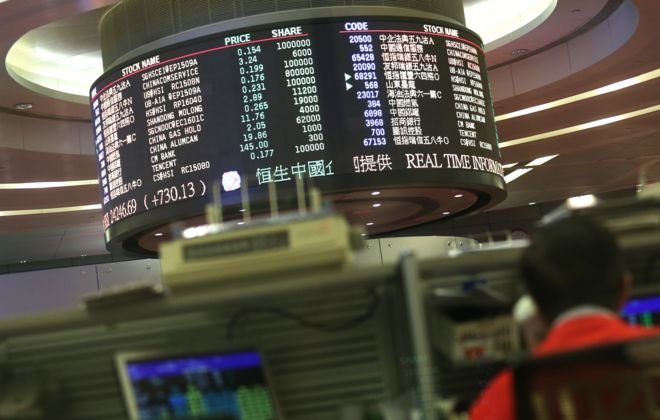
TOKYO: U.S. stock futures slid, and the yen rose against the dollar on Friday after U.S. President Donald Trump proposed additional tariffs on China, aggravating trade tensions and smothering a revival in broader investor risk appetite.
MSCI’s broadest index of Asia-Pacific shares outside Japan lost 0.25 percent. The index has spent the week swinging wildly in and out of negative territory amid the back-and-forth of the U.S.-China trade dispute.
Australian stocks slipped 0.35 percent and South Korea’s KOSPI lost 0.3 percent. Japan’s Nikkei fell 0.15 percent.
The S&P 500 E-mini futures were down 1.2 percent, pointing to a lower start for Wall Street later in the session.
The Dow and the S&P 500 posted gains for a third day in a row on Thursday, the longest stretch of gains in about a month, as investor fears of an escalating trade conflict between the United States and China abated, turning the focus to upcoming earnings.
Trade tensions, however, returned to the fore after Trump said late on Thursday that he had instructed U.S. trade officials to consider $100 billion in additional tariffs on China, fuelling the trade dispute between the world’s two economic superpowers.
Trump said in a statement the extra tariffs were being considered “in light of China’s unfair retaliation” against earlier U.S. trade measures.
The dollar, which had risen to a one-month high against the yen on Thursday on an earlier easing of trade fears, slipped against its Japanese peer after Trump’s latest trade offensive.
The greenback was down 0.3 percent at 107.080 yen, pulling back from 107.490, its highest since March 1. It was up 0.8 percent on the week.
The dollar had risen to a one-month peak versus the yen, bolstered by Wall Street’s bounce on Thursday when the United States appeared to signal a willingness to resolve the trade dispute.
The yen, a perceived safe-haven currency, is often sought in times of market turmoil and political tensions.
The dollar dipped 0.15 percent to 0.9621 Swiss franc, another safe-haven currency.
The euro rose 0.1 percent to $1.2248.
The dollar index against a basket of six major currencies was down 0.1 percent at 90.359. The index has risen 0.4 percent this week.
Treasury debt prices gained, and yields declined as investors sought the safety of government bonds.
The 10-year Treasury note yield fell 2 basis points to 2.811 percent, pulling back from Thursday’s nine-day high of 2.838 percent.
Crude oil prices fell as risk aversion gripped the broader markets.
U.S. crude slipped 0.6 percent to $63.14 a barrel and Brent was down 0.55 percent at $67.94 a barrel. Oil had gained on Thursday, helped by higher equities and Saudi Arabia’s unexpected hike in crude prices.
Beyond the trade turmoil, financial markets are focused on Friday’s U.S. non-farm payrolls report, which could determine the pace of future Federal Reserve interest rate rises and consequently the dollar outlook.






